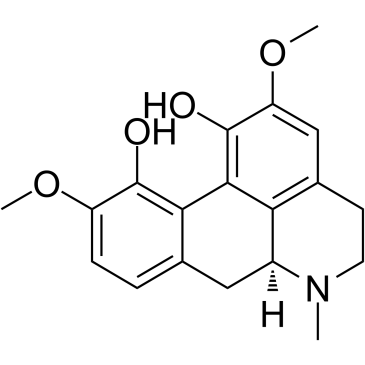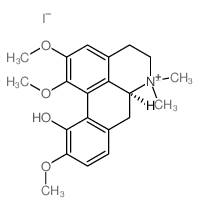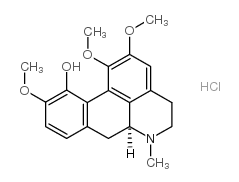475-67-2
| Name | isocorydine hydrochloride |
|---|---|
| Synonyms |
artabotrin
1,2,10-Trimethoxy-6aa-aporphin-11-ol d-isocorydine (6aS)-1,2,10-Trimethoxy-6-methyl-5,6,6a,7-tetrahydro-4H-dibenzo[de,g]quinolin-11-ol luteanin isocorydine (S)-5,6,6a,7-Tetrahydro-1,2,10-trimethoxy-6-methyl-4H-dibenzo[de,g]quinolin-11-ol iso-Corydine LUTEANINE |
| Description | Isocorydine is isolated from Dicranostigma leptopodum (Maxim.) Fedde (DLF). Isocorydine combines with Doxorubicin (DOX) has a promising potential to eradicate hepatocellular carcinoma (HCC)[1]. |
|---|---|
| Related Catalog | |
| In Vitro | Isocorydine (0-400 ug/ml; 48 hours) show a significant decrease in the IC50 for ICD and DOX, the CI values are 0.605, 0.644, 0.804, and 0.707 respectively for Huh-7, Hep-G2, SNU-449 and SNU-387[1]. Isocorydine (0-400 ug/ml; 48 hours) abrogates DOX-induced upregulation of mesenchymal markers and the downregulation of epithelial markers in human HCC cell lines[1]. Cell Viability Assay[1] Cell Line: Huh-7, Hep-G2 , SNU-387, SNU-449 cells Concentration: 0-400 ug/ml Incubation Time: 24 hours Result: Had a higher cytotoxicity in HCC cells in comparison to ICD or DOX alone. Western Blot Analysis[1] Cell Line: Huh-7, Hep-G2 , SNU-387, SNU-449 cells Concentration: Incubation Time: 24 hours Result: Downregulated protein levels of Claundin-1 and E-cadherin. |
| In Vivo | Isocorydine (intraperitoneal injection; 0.4 mg/kg; every 2 days for 2 weeks) retards the tumor growth, but the combined treatment of Doxorubicin (DOX) or ICD significantly inhibits tumor growth[1]. Animal Model: Female nude mice[1] Dosage: 0.4 mg/ml Administration: Injected intraperitoneally every 2 days for 2 weeks Result: Combined treatment of isocorydine and DOX showed a promising potential to eradicate HCC. |
| References |
| Density | 1.2±0.1 g/cm3 |
|---|---|
| Boiling Point | 506.1±50.0 °C at 760 mmHg |
| Melting Point | 216-220ºC(lit.) |
| Molecular Formula | C20H23NO4 |
| Molecular Weight | 341.401 |
| Flash Point | 259.9±30.1 °C |
| Exact Mass | 341.162720 |
| PSA | 51.16000 |
| LogP | 3.09 |
| Vapour Pressure | 0.0±1.4 mmHg at 25°C |
| Index of Refraction | 1.604 |
| Storage condition | -20℃ |
CHEMICAL IDENTIFICATION
HEALTH HAZARD DATAACUTE TOXICITY DATA
|
| WGK Germany | 3 |
|---|---|
| RTECS | CE1057950 |
| Precursor 2 | |
|---|---|
| DownStream 3 | |


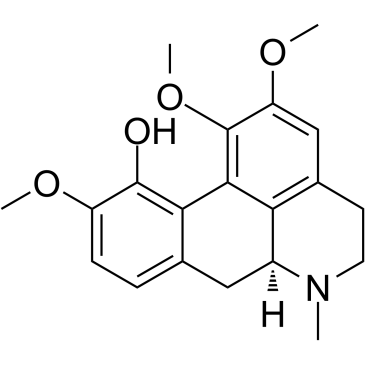
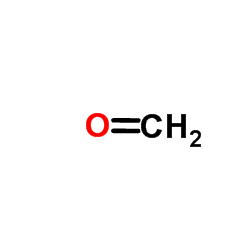
![4,5,6aα,7-Tetrahydro-1,2,10-trimethoxy-6H-dibenzo[de,g]quinoline-11-ol structure](https://image.chemsrc.com/caspic/138/475-70-7.png)
